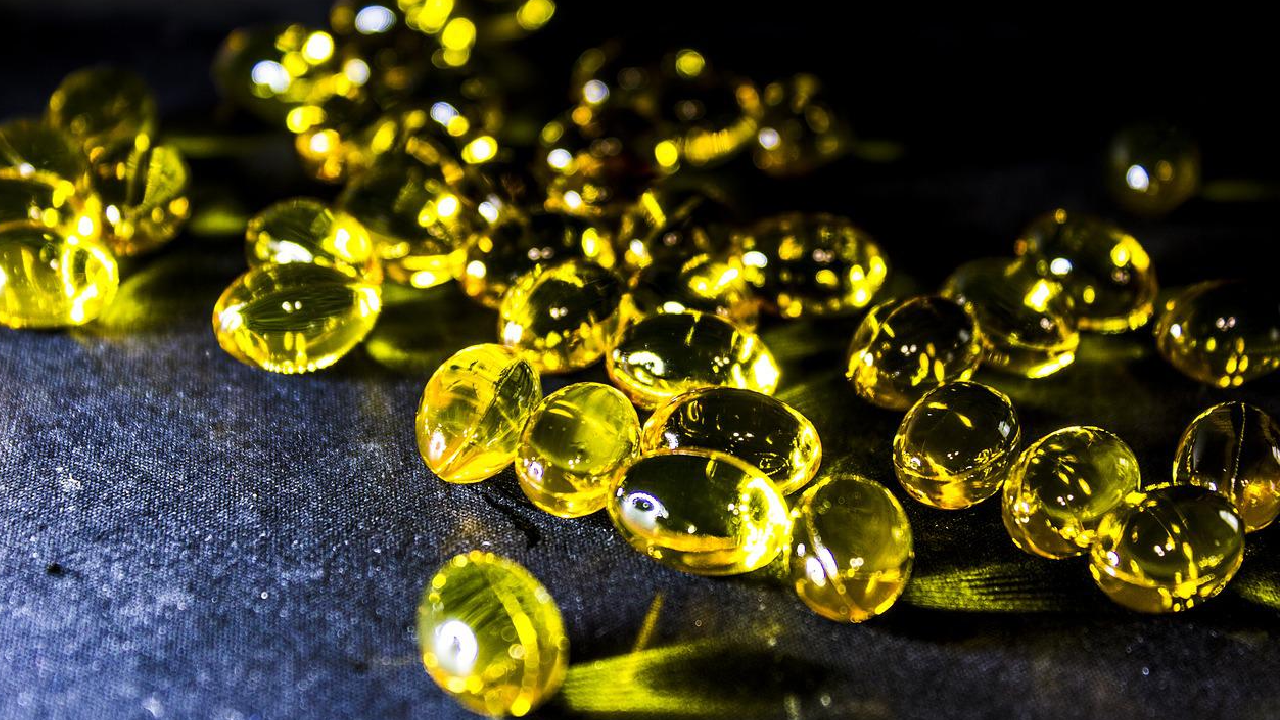What are omega-3 fatty acids?

What are omega-3 fatty acids?
What are omega-3 fatty acids?
Omega-3 is a polyunsaturated fatty acid with double bonds in the structure. The number in the fatty acid name indicates the location of the first unsaturated bond when starting from the methyl end of the carbon chain. The three main omega-3 fatty acids are alpha-linolenic acid (ALA), eicosapentaenoic acid (EPA), and docosahexaenoic acid (DHA).
Omega-3 fatty acids are involved in many processes in our body. The most important of these are the production of eicosanoids and participation in inflammatory processes. Compared to omega-6 fatty acids, omega-3 has anti-inflammatory properties.
Why do I need omega-3? What are the benefits of consuming it? How do the benefits manifest?
It is very important to get omega-3 fatty acids from food. There is very little conversion of ALA to EPA and DHA in the liver. ALA can be obtained from vegetable materials such as flax, soybean and rapeseed oil. EPA and DHA are synthesized by microphytes, or small aquatic plants that are eaten by phytoplankton and fish. This is why a lot of EPA and DHA is found in fish and fish oil.
A meta-analysis has shown a positive effect of omega-3 fatty acids on heart rate and a reduction in cardiovascular mortality, which is why the European Food Safety Authority (EFSA) recommends consuming at least 250 mg of EPA and DHA per day. However, it is important to get at least 250 mg of DHA a day for vision and heartbeat. Of the omega-3 fatty acids in the brain, DHA is the most abundant and plays an important role in the nerve cell membrane. Some studies have also shown that omega-3 fatty acids have a neuroprotective effect on aging and the development of neurodegenerative diseases. DHA is also abundant in retinal photoreceptors, making it important in supporting visual function.
What are the signs of omega-3 deficiency and its consequences? Who should consume fish oil?
Omega-3 deficiency may include dryness and irritability of the skin, low mood, dryness and itching of the eyes, inflammatory processes, and high blood pressure.
Fish oil should be consumed by those who do not eat enough fish to restore the balance of omega-6 and omega-3 fatty acids. Omega-6 has anti-inflammatory and omega-3 anti-inflammatory properties. It is also recommended that pregnant women take omega-3 fatty acids, as omega-3 is important for the development of the baby’s brain and vision.
When should I take fish oil?
Fish oil can be taken at any time, but it should be done consistently. It is recommended to consume fish oil with food, as it increases the absorption of omega-3 fatty acids, especially in the less absorbable form.
How to choose a product?
- Capsule or liquid. It is possible to buy fish oil on the market both in liquid and capsule form. Both forms have their pros and cons. Namely, the oil starts to be absorbed faster, but its possible unpleasant taste, impracticalness when carrying the bottle and the risk of the glass bottle breaking are some of the major disadvantages.
- Amount of EPA and DHA. The most important figures on the packaging are the eicosapentaenoic and docosahexaenoic acid contents. These are active components that are necessary for health. Namely, DHA supports brain function and vision when consumed at 250 mg per day. Normal heart rate requires 250 mg of both EPA and DHA per day.
- Form of fish oil. Fish oil can be in various forms, such as triglyceride, ethyl ester, phospholipid or free fatty acids. Natural fish oil is in triglyceride form. To concentrate and purify fish oil from heavy metals, the oil is processed into ethyl esters. The amount of EPA and DHA also increases during concentration. After purification, the fish oil can be reprocessed into the triglyceride form. Much research has been done on which form of fish oil is best absorbed. Namely, many studies confirm faster and better absorption of triglycerides compared to ethyl esters. However, whatever the form, it must be borne in mind that fish oil must be consumed consistently and over a long period of time to achieve the desired effect.
- Cleanliness. When choosing fish oil, it is worth researching the content of heavy metals. The oil is generally properly decontaminated to ensure quality, but it is advisable to choose smaller fish at the first end of the food chain, such as sardines or anchovies, as they contain less heavy metals. Preference should also be given to a producer whose fish oil consists of one species of fish caught in the same region. This helps to ensure the quality of the fish oil.
- Transparency. Reliability is added to the product by stating which fish the product is made from and from which region the fish was caught. The results of the tests on the purity and content of heavy metals in fish oil also give an indication of reliability.
- Excipient content. It is always worth reading the list of ingredients critically. Very often, you can find excipients that are not really needed. In the case of fish oil, there is no direct need for a filler, coloring agent or flavoring. However, an antioxidant should be found there that serves the purpose of a preservative. This is necessary so that the oil does not rancid. The preservative could be natural, e.g. vitamin E, also known as tocopherol. Therefore, the fewer excipients, the better.
Used materials
- National Institutes of Health (2021). Omega-3 fatty acids. Fact sheet for health professionals. https://ods.od.nih.gov/factsheets/Omega3FattyAcids-HealthProfessional/.
- EFSA (2010). Scientific opinion on the substantiation of health claims related to eicosapentaenoic acid (EPA), docosahexaenoic acid (DHA), docosapentaenoic acid (DPA) … – EFSA Journal, 8(10), 1796. https://efsa.onlinelibrary.wiley.com/doi/epdf/10.2903/j.efsa.2010.1796.
- Science based health (d). Triglyceride vs. Ethyl Ester forms of fish oil omega-3s. https://www.sciencebasedhealth.com/Fish-Oil-EE-vs-TG-omega-3s-which-is-better-W119.aspx.
- Dyall, S. C., Michael-Titus, A. T. (2008). Neurological benefits of omega-3 fatty acids. – NeuroMolecular Medicine, 10, 219–235. https://link.springer.com/article/10.1007/s12017-008-8036-z.
- Dyall, S. C. (2015). Long-chain omega-3 fatty acids and the brain: A review of the independent and shared effects of EPA, DPA and DHA. – Frontiers Aging Neuroscience, 7, 52. https://www.ncbi.nlm.nih.gov/pmc/articles/PMC4404917/.
- Hodge, W. et al. (2005). Effects of omega-3 fatty acids on eye health: Summary. – AHRQ Evidence Report Summaries. Agency for Healthcare Research and Quality (US). https://www.ncbi.nlm.nih.gov/books/NBK11888/.
- Shindou, H. et al. (2017). Docosahexaenoic acid preserves visual function by maintaining correct disc morphology in retinal photoreceptor cells. – Journal of Biological Chemistry, 292, 12054–12064. https://www.sciencedirect.com/science/article/pii/S0021925820429771?via%3Dihub.
- Querques, G. et al. (2011). Retina and omega-3. – Journal of Nutrition and Metabolism, e748361. https://www.ncbi.nlm.nih.gov/pmc/articles/PMC3206354/.
- Khan, S. U. et al. (2021). Effect of omega-3 fatty acids on cardiovascular outcomes: A systematic review and meta-analysis. – EClinical Medicine, 38, 100997. https://www.thelancet.com/action/showPdf?pii=S2589-5370%2821%2900277-7.
- Healthline (2021). 5 signs and symptoms of omega-3 deficiency. https://www.healthline.com/nutrition/omega-3-deficiency#4.-Joint-pain-and-stiffness.
- Punia, S. et al. (2019). Omega 3-metabolism, absorption, bioavailability and health benefiits – A review. – PharmaNutrition, 10, 100162. https://www.sciencedirect.com/science/article/pii/S221343441930088X
- Dyerberg, J. et al. (2010). Bioavailability of marine n-3 fatty acid formulations. – Prostaglandins, Leukotrienes and Essential Fatty Acids, 83, 137–141. https://www.sciencedirect.com/science/article/pii/S0952327810001171?via%3Dihub.
- Ghasemifard, S. et al. (2014). Omega-3 long chain fatty acid “bioavailability”: A review of evidence and methodological considerations. – Progress in Lipid Research, 56, 92–108. https://www.sciencedirect.com/science/article/pii/S0163782714000435?via%3Dihub.












